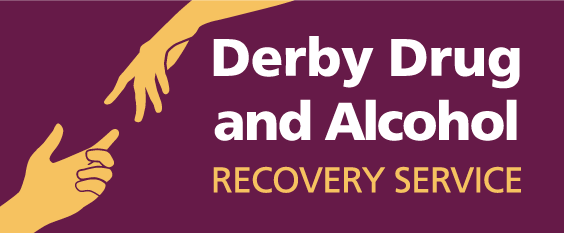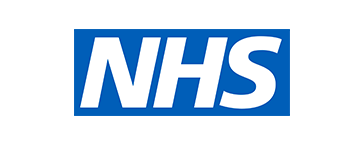It’s good to talk to someone about your problems - whether that’s your GP, a close friend or a sympathetic relative. But if you don’t feel ready to do that yet, there’s plenty you can do to help yourself.
Here’s some advice on controlling your drinking, links to organisations which can offer group support, and websites and Apps to help you take control.
If you have become dependent on alcohol, you will have found it difficult to fully control your drinking in some way. So you'll probably need some help either to cut down and control your drinking or stop completely, and also some plans to maintain the improvement after that.
If you have become physically dependent and need to stop drinking completely, stopping overnight could be harmful. You should get advice about this and about any medicine you may need to do this safely.
The sorts of withdrawal symptoms that suggest you may need medicine include:
- anxiety after waking
- sweating and tremors
- nausea or retching in the morning
- vomiting
- hallucinations
- seizures or fits.
What's in your drink?
Wine
A glass of wine might have more alcohol and calories in it than you would expect.
A typical-strength medium (175ml) glass of wine has around 2.3 units of alcohol. That means drinking more than six medium glasses of wine a week would put you above the UK Chief Medical Officers' (CMO) low risk drinking guidelines, of drinking less than 14 units a week.
Keeping an eye on how much wine you drink, and staying within the low-risk guidelines, has clear benefits for your long-term health. It could lower your blood pressure and reduce your risk of developing at least seven types of cancer, liver or heart disease.
Lager
Beers, including lager, are the most commonly bought type of alcoholic drink in pubs in Great Britain.
And Drinkaware research has found that lager is the type of alcohol drunk most at home by people who drink more than the UK low risk drinking guidelines - It’s safest not to drink more than 14 units a week, spread over three or more days, with several drink-free days - and no bingeing.
Spirits
All spirits – including vodka, gin, rum, whisky, brandy – are strong alcoholic drinks.
Regularly drinking more than the low risk drinking guidelines increases your risk of serious health conditions including heart problems, high blood pressure and poor mental health.
Drinking alcohol also causes at least seven types of cancer, including breast, bowel, mouth and throat cancers. The risk of developing these types of cancer starts to increase even at low levels of drinking - so the less you drink, the more you reduce your risk.
Find out more about alcohol units on the Drinkaware website
Make a note of when, what and how much you drink. You can also include where you were, who you were with, and what you’d been doing just before so that you can see if you can spot any patterns in your diary. You might always drink around certain people, for example.
If you can work out the people, places and things that trigger your drinking, you can start to make a plan. You might want to cut some triggers out entirely, or avoid combinations that give you cravings.
1. Plan ahead
If you know you don’t want to drink on a night out, a little bit of planning ahead can make things much easier. Try to think about your usual triggers for drinking and how you might avoid these. If you associate a particular place, person, or friendship group with drinking, then switch things up for a while, just until you feel confident with the change. Deciding on an alternative drink to have before you go out can also help you avoid stumbling.
2. Tell people
You might find it helps to tell friends or family that you won’t be drinking. This can have a few benefits, as announcing your intentions can give you the confidence and motivation to stick to them. They can also offer support if you need it, and it helps avoid any awkward moments or conversations later on in the night when you’re busy enjoying yourself.
3. Be ready for peer pressure
Not everybody will be supportive. If friends, colleagues, or family are used to seeing you drinking, they may tease or cajole you into ‘just having one’. Think about how you’ll deal with this kind of peer pressure beforehand and be ready with a response. You might say you’re doing it for health reasons, cutting down on costs or you just don’t fancy it tonight. People will usually move on or respect your decision if you stand firm.
4. Explore alcohol-free alternatives
There is a huge variety of alcohol-free drinks available. Alcohol-free beers, wines and spirits are an easy replacement for your usual tipple. If you want to try something completely different, there are lots of interesting soft drinks on offer these days, from blood orange bitters to botanical sodas, you may just wonder what you ever saw in a glass of wine or pint of lager.
5. Organise some alcohol-free activities
If nights out with friends tend to revolve around the pub or bar, try something different. Some classic drink-free nights out that never get boring include trips to the cinema, late-night food markets, theatre, or bowling. But if you’re looking for something new, how about trying an escape room, gaming or virtual reality experience? If you like being more active, try renting roller skates in the park or night-time golfing. If you’re looking for free nights out, booking audience tickets for a TV show, or catching a free exhibition or open mic night can be good cheap fun.
6. Watch your savings grow
If you’ve decided to cut back on alcohol, you’ll probably save a bit of money. It can be really motivating to record how much you have saved on an alcohol-free night out. You can note down what you save each time, or use one of the many free apps available online. Then every month, enjoy putting that money towards a treat or something else you’ve been meaning to get.
7. Try some new hobbies and grow your network
Finding a new hobby can be a great way to spend your evenings with people that share your interests, especially if you’re on your own. You might have an old interest you always wanted to pursue or try something completely new. It could be photography, a bit of five aside, a community choir, a local drama group, or even a walking group. The world really is your oyster. Following local Facebook groups, as well as Nextdoor and Gumtree, can also be a great way to find out about activities in your area.
8. Get active
Reducing your alcohol intake often goes hand in hand with making other improvements to your health, such as becoming more active. If you’re on a budget, there’s plenty of free ways to stay fit like free swim sessions at your local sports centre or Parkrun. Not only will you be getting the health benefits of drinking less, like more energy and better sleep but you’ll be getting fit too.
9. Have plans for the morning after
There’s nothing better at stopping you from drinking than having a good reason to get up the next morning. Try and plan something you enjoy to set yourself up for the next day. It could be an early morning run, dog walk at sunrise or early haircut appointment; or just meeting a friend for breakfast. Make sure it’s something you really look forward to and you’ll be more determined to stay alcohol-free the night before.
10. Celebrate your progress
Drink-free nights are something to be proud of, so celebrate them. You’ve stuck to your goals, saved some money, and made a great step towards improving your health and wellbeing.
Gradual reduction is often the best way to quit.
Don’t feel guilty about any setbacks either. It's a process and every challenge is an opportunity to learn more about yourself.
Mindfulness or meditation apps and videos are good distractions - take a look at some apps below.
0300 123 1110 - A free, confidential helpline for people who are concerned about their drinking, or someone else's. Weekdays 9am - 8pm, weekends 11am - 4pm.
Five steps to mental wellbeing
They could help you to feel calmer and more relaxed when you find yourself reaching for a drink.
Most importantly, always remember that you’re not alone. There’s lots of support out there and other people who are in a similar position to you.
To help people with alcohol problems to achieve and maintain positive changes there are a range of independent organisations in Derby which provide group support. By attending group meetings people are able to share experiences and build friendships with people who may have been through similar situations which can help people overcome their own challenges.
For more information about what these groups do and where in Derby they meet you can visit their websites or give them a call.
Alcoholics Anonymous
0800 9177 650 - For people seeking support and recovery from alcohol misuse.
Al-anon
0800 0086 811 - Support for anyone affected by someone else's drinking - family or friends.
Alcohol Change
This UK charity is working for a society that is free from the harm caused by alcohol.
Adfam
Adfam is a national charity tackling the effects of alcohol, drug use or gambling on family members and friends. It includes forums, resources, and an extensive list of other online support.
Recovery Focus
020 7697 3300 - Recovery Focus is a national group of charities, who are all highly experienced in providing specialist support services to individuals and families living with the effects of mental ill health, drug and alcohol use, gambling and domestic violence across the country.
Smart Recovery
Smart Recovery UK runs a network of self help/mutual aid meetings where, through open and confidential discussion participants help each other and themselves with recovery from any kind of addictive behaviour.
Search for Apps on the Apple Store or Google Play. Many apps have a free trial period but then charge, sometimes annually, so try them out first if you’re not sure. Here a few that are ether free or only require a relatively low cost single payment.
Try Dry
Download the free Dry January app to help you meet your goals, whether you want to take on Dry January (or another dry challenge), cut down on your drinking, or go totally alcohol-free.
Smiling Mind
Practice daily meditation and mindfulness exercises from any device. Smiling Mind is a completely free not-for-profit tool developed by psychologists and educators. It’s an Australian app (so you’ll need to be ok with the accent!) and has lots of options for all ages
Anxiety Solution: Calmer You
This is an app for iPhones only. It features over 70 mindfulness, meditation, breathing tools, sleep stories and fitness routines based on proven science for stress relief, helping anxiety, depression, improving mood and getting your mind calm. Free trial then £5.99
buddhify
Whether you're looking to reduce stress and anxiety, or get a better night's sleep buddhify has easy-to-follow guided meditations to help you live happier and healthier. £3.59
Calm
This is one of the most popular and award winning meditation and sleep apps, with lots of content including guided sessions, music and sleep stories. There is a free trial, but it is then £28.99 so give it a try first.

